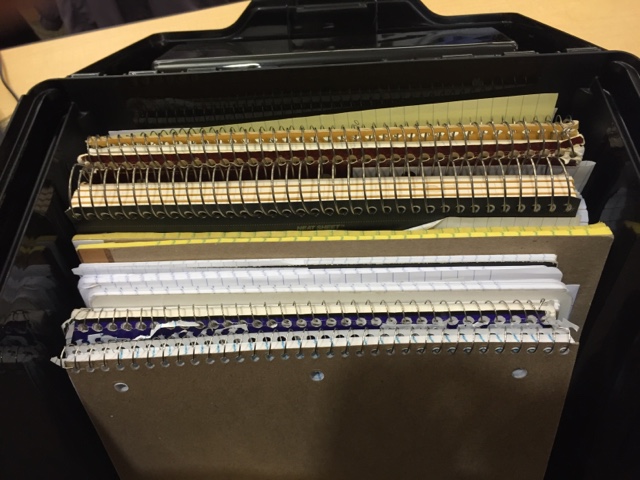Tonight a genealogy discussion group I belong to had a “Lock-In”. About 50 of us were locked in a local public library for 6 hours this evening to do research. It was my first lock-in so I wasn’t quite sure what to expect.
Month: April 2016
Will American Genealogy Change?
Last Saturday I attended the Baltimore County Genealogical Society’s Spring Seminar. The speaker was Dick Eastman, who if you don’t know, is the author of Eastman’s Online Genealogy Newsletter (http://www.eogn.com).
Dick presented 4 topics; “Going Nearly Paperless – How to Get Started”, “The Organized Genealogist”, “Using MyHeritage.com Effectively” and “The Family History World in 10 Years’ Time”.
Although I enjoyed all of his presentations, I found his last session (“The Family History World in 10 Years’ Time”) fascinating. The session was kind of geared more toward societies, but he presented thoughts and opinions that, honestly, made me think “Wow!”
The highlights:
Dick summarized his view of the “versions” of genealogy.
- Genealogy 0.5 existed up to about 1920. It was an expensive hobby as the records available were mostly original records and compiled sources (which rarely included source citations). Most genealogists were elitists whose main goal was to connect themselves to a royal family. There were a few genealogy societies, again, mostly for elitists.
- Genealogy 1.0 was the period from about 1920 to 1980. The invention of microfilming meant records were starting to become more readily available, along with reference books and better source citations. The release of popular books, particularly Alex Haley’s “Roots” caused a more wide-spread interest in genealogy. More genealogy societies appeared.
- Genealogy 2.0 was the next “version”, from 1980 to 2015. The emerging availability of digital records, social networking and the myriad of genealogy focused television programming has captured not only traditional genealogists, but a whole new audience.
- Genealogy 3.0 is where we are now. There are a tremendous amount of on-line records as well as genealogy information, resources and education found on sites like Twitter, Facebook, Wikis, Blogs, Google Books, etc.
- “More records on-line.” We are already seeing this. The amount of records available on-line is staggering. Digitizing and transcribing original records will help with record preservation. Everything from present-day microfilm, books and paper records from small local repositories are being digitized. The ability to archive email and websites is powerful. Not only will future genealogists will have access to a huge amount of records, but there will be archival copies for government offices.
- “Online, everywhere, all the time.” Cloud services are expanding and genealogists have access to records anytime, anywhere from traditional computers, laptops, tablets and smartphones and whatever else comes down the pike.
- “New and better software.” New cloud-based software will allow better collaboration and works on all platforms.
- “A changing audience.” Genealogists are getting younger. Because genealogy is “mobile” and TV shows and other media dedicated to genealogy are more popular, genealogy is now cool! However, the younger genealogists do not have the same interests. They are more interested in the stories of a handful of ancestors, not the names and dates of all ancestors. They probably will not care about pedigree charts and family group sheets. They also may not join societies.
- 40% were not born in the US
- 90% had at least one grandparent born outside the US
- 50% classified themselves as non-white
- 50% did not share a surname with their fathers
Gotta get back in time
A very cool video showed up on my Facebook timeline this morning.
A photographer and animator in Moscow, Russia has taken pictures from several U.S. cities in the 1900s and animated them.
Visit PetaPixel to see Alexey Zakharov’s “The Old New World” video.
And if you are interested, visit Alexey’s page on Behance to see other projects by Alexey.
Enjoy!!


